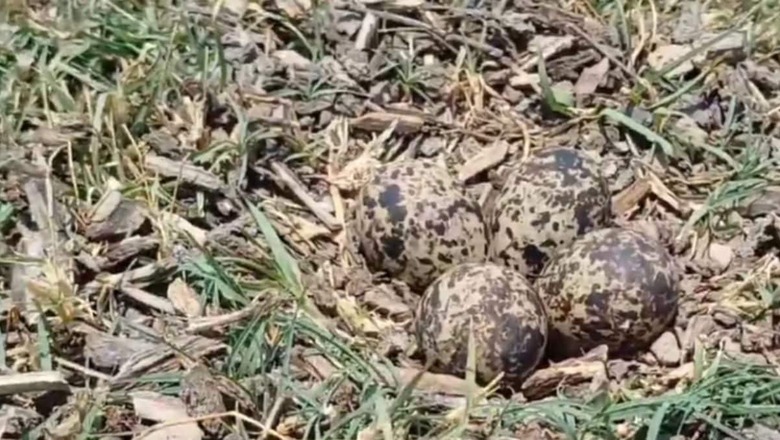
views
Red-Wattled Lapwing also called Titahari or Titudi in Rajasthan is a type of birda and is known for alerting people about the onset of monsoon. In parts of Rajasthan, it is believed that laying eggs by the lapwing on high ground indicates good rains to come. Similarly, the Bhils of Malwa believe that the eggs laid by the Tithari in the dry beds of streams are forewarnings of delayed rains or droughts. If the Titudi bird lays eggs on the banks of a river is taken as an indication of normal rains. They have loud alarm calls that alert their peers about human or animal movements. These ground birds lay three to four similar-looking eggs.
If the female Red-Wattled Lapwing lays six eggs, then the rural people of Bharatpur perceive it as a good omen for rich crops and rain. These ground birds nest on open grasslands, small stones, deserted mansions and deserted roofs. They lay about 4 to 6 eggs from April to the first week of June. Rural people and elders believe that when this groundbird lays eggs, there is a possibility of rain within a few days.
The elders of Bharatpur believe that the Titudi bird knows the signs of the upcoming weather in advance. They also warn about the arrival and presence of various types of predatory birds and animals through their voices. They try to protect their nests through the flap of their wings. The babies hatch in 18 to 20 days after the eggs are laid by the bird.
Initially, the colour of the newborn is red but as they grow up, their colour turns to yellow. Their eggs are covered with brown-black spots. They feed on insects for a living. Adult Titahari often fly around their nest to protect their eggs and family from predators. The chicks follow their parents for feeding after hatching. They try to lay low on the ground when feel threatened.
These birds are said to feed at night, especially during the full moon. They are quite vigilant day or night. They are considered a headache for hunters due to the loud cries of these birds on their arrival.



















Comments
0 comment